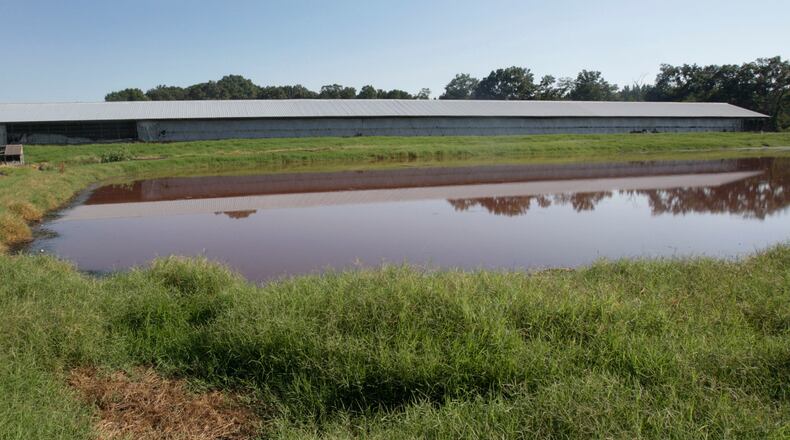Proposed state legislation to protect farms from lawsuits is setting off a battle over the rights of farmers against the rights of property owners near them.
Proponents of House Bill 1150 say farms and agricultural operations such as slaughterhouses need more protection against being sued for emitting smells, noises and other activities that neighbors find offensive and believe diminish their property values.
“Any kind of legal action can put (farmers) out of business,” said bill sponsor Rep. Robert Dickey, R-Musella, who is chairman of the House Agriculture Committee.
The bill, known as the Freedom to Farm bill, was introduced to the Legislature late Tuesday and aims to prevent so-called nuisance lawsuits. A similar bill in 2020 failed to pass amid disagreements.
Opponents say Georgia’s current law already protects farmers from nuisance lawsuits by stipulations such as one that prevents people who move near a farm from suing. Property owners who already lived near a farm before the current law went into effect have retained the right to sue.
The proposed legislation declares that any farm in operation for a year or more cannot be found by a court to be a nuisance. That added level of protection strips neighbors of their legal power to force a farm to correct a problem, such as creating overpowering odors from manure sludge ponds, opponents say.
The changes also would encourage “industrial scale” animal operations by making them bulletproof from nuisance suits that have cost massive operations in other states millions of dollars to fix problems or pay for diminishing neighbors’ property values, said April Lipscomb, a senior attorney with the Southern Environmental Law Center.
“The clear losers are private landowners and the general public, and the clear winners are the multinational conglomerates who want to move into the state of Georgia,” Lipscomb said.
Dickey said the change is needed to protect farmers’ investments and practices so they can continue producing crops that are a critical part of Georgia’s economy.
Farming is the still the largest single state economic sector, producing an annual $12.2 billion in agricultural goods and a compounded $69 billion in economic impact, according the University of Georgia’s most recent numbers.
“What we are trying to do with this bill is find a happy medium and keep farmers and neighbors out of lawsuits,” Dickey said.
There have been few such suits filed in Georgia. Dickey said he is trying to get ahead of them. Lipscomb said it’s unnecessary.
“I don’t know of a single farm that has shut down because of a nuisance lawsuit,” Lipscomb said.
Lipscomb said that limiting the window to sue a farm to one year from the beginning of operations essentially makes it impossible for a farm to ever be found to be a nuisance. It takes time to get an operation going, and people who discover a problem from smells or other issues can often spend months or more than a year trying to find the source, then work their way from county to state government trying to get a resolution.
“We have to have the right balance between protecting existing communities and farms and the need to allow for encouraging additional agricultural operations in Georgia, but this bill does not strike that balance,” she said.
Dickey said discussion of the bill will begin next week.
About the Author
Keep Reading
The Latest
Featured




